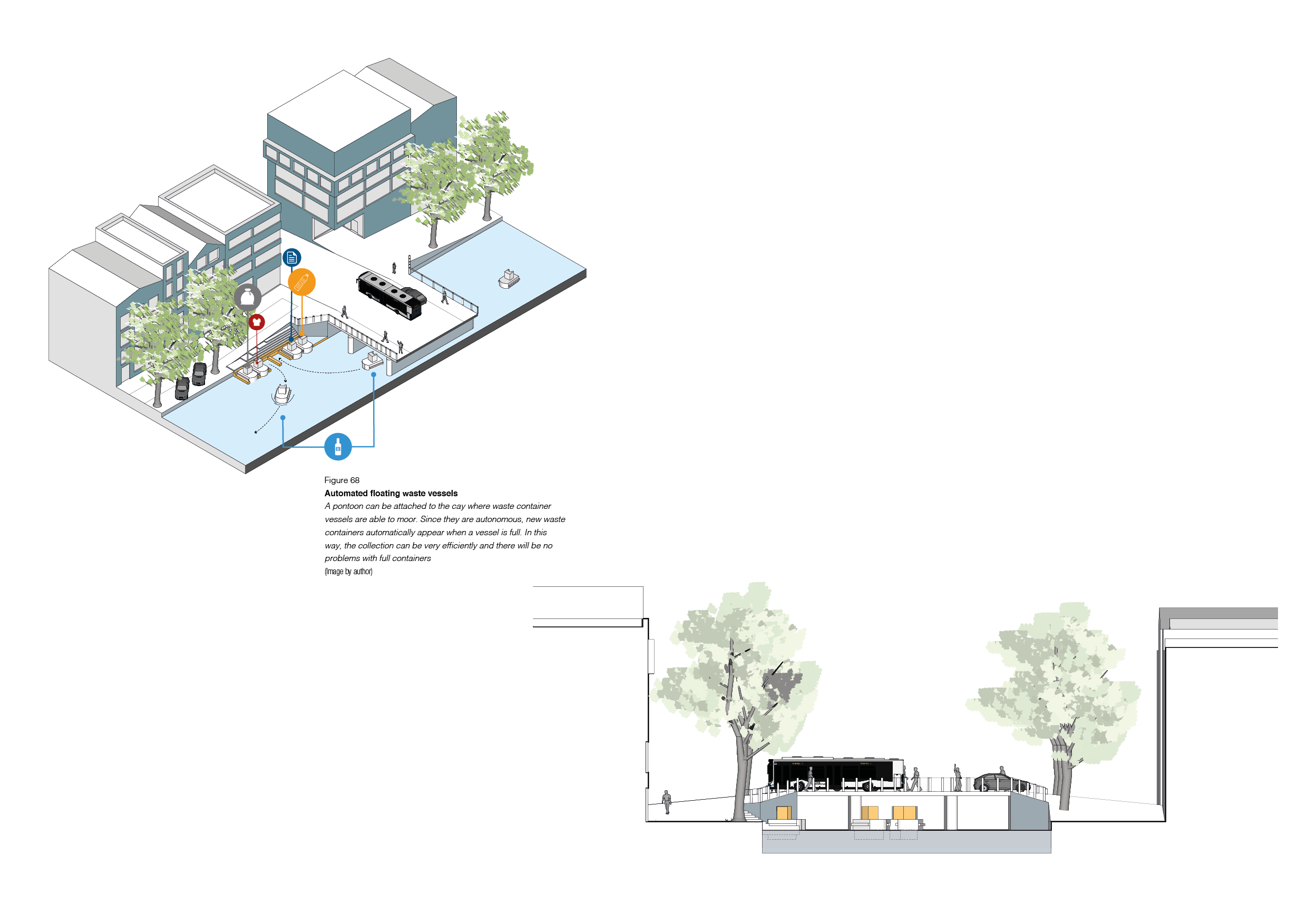Urban integration of waste collection and treatment systems based on circular concepts; Recommendations for Amsterdam
Student: Twan Cortenraede
First mentor: Ulf Hackauf
Second mentor: Alexander Wandl
Program: MSc Urbanism
Graduation date: 12/04/2012
Abstract
The worldwide trends of depleting natural resources and increasing generation of waste create challenges concerning the development and growth of our cities. Urban growth is enforcing these trends, resulting in growing problems and reaching limitations to the growth of our economies. In this thesis, these worldwide trends will be challenged in the city of Amsterdam, the Netherlands. The concept of circular economy is used to improve residential waste collection and treatment to close loops and reduce environmental impact. Amsterdam is a fast growing city and has many spatial challenges related to this growth. A new more integrated system for residential waste treatment and collection is needed. In this way, the city can live up to its high circular ambitions and reach their set goals in a short time frame. To conquer these challenges, a link between circular economy and urban design is made. Circular concepts can now be translated to urban systems, creating possibilities for urban integration. In this way, circular economy becomes part of the city, interacts with other systems and circular economy evolves in a economic, social and environmental concept which contributes to sustainable development of our cities in the future. The circular proposals are integrated in Amsterdam, taking into account the great diversity in urban forms and possible connections to existing systems. This all results in a list of recommendations for the municipality on how to improve their vision and continue with their circular ambitions. The main recommendations concluded from this research are:1. Waste treatment and collection should connect to existing urban systems, creating more support and integration within daily lives.2. Circular economy does not have just a economic value. Circular waste treatment can contribute to the city, strengthen communities and improve living quality .3. The value of circular waste treatment needs to experienced by the residents themselves. It will contribute to the motivation and will support a change in disposal behaviour.4. Separate waste collection should be available for all the residents of Amsterdam. It will require large investments in some parts of the city. However, by making clever use of existing structures, improvement can be made fast and without tremendous costs.
Subject
Circular economy
Urban design
Urban metabolism
Systemic design
Urban integration
Residential waste
Sustainable urban development



